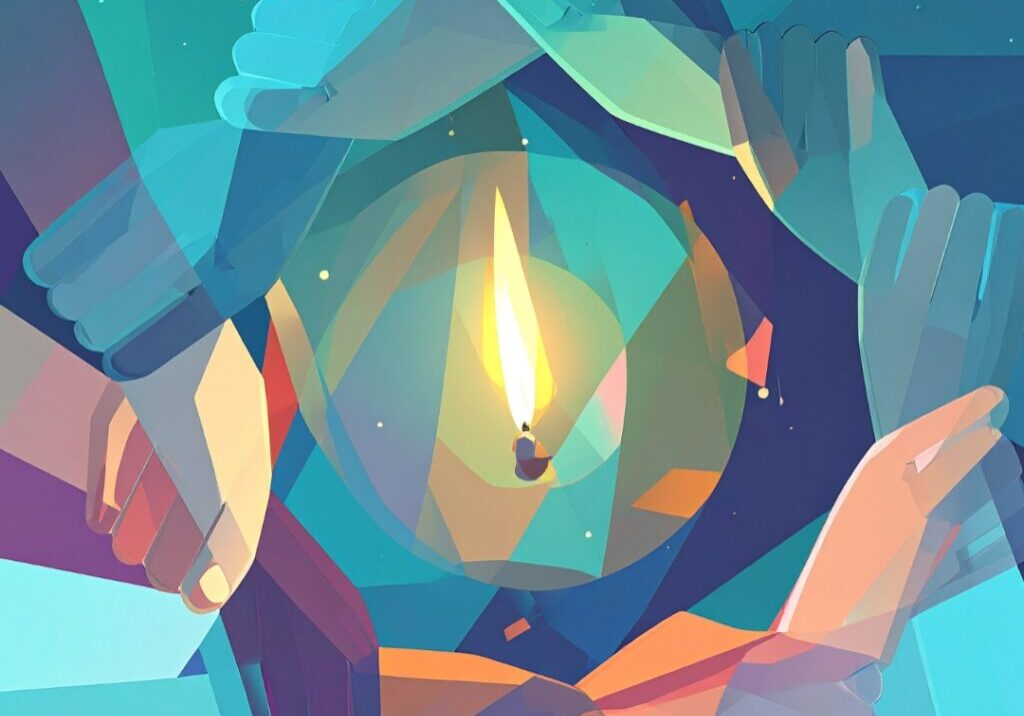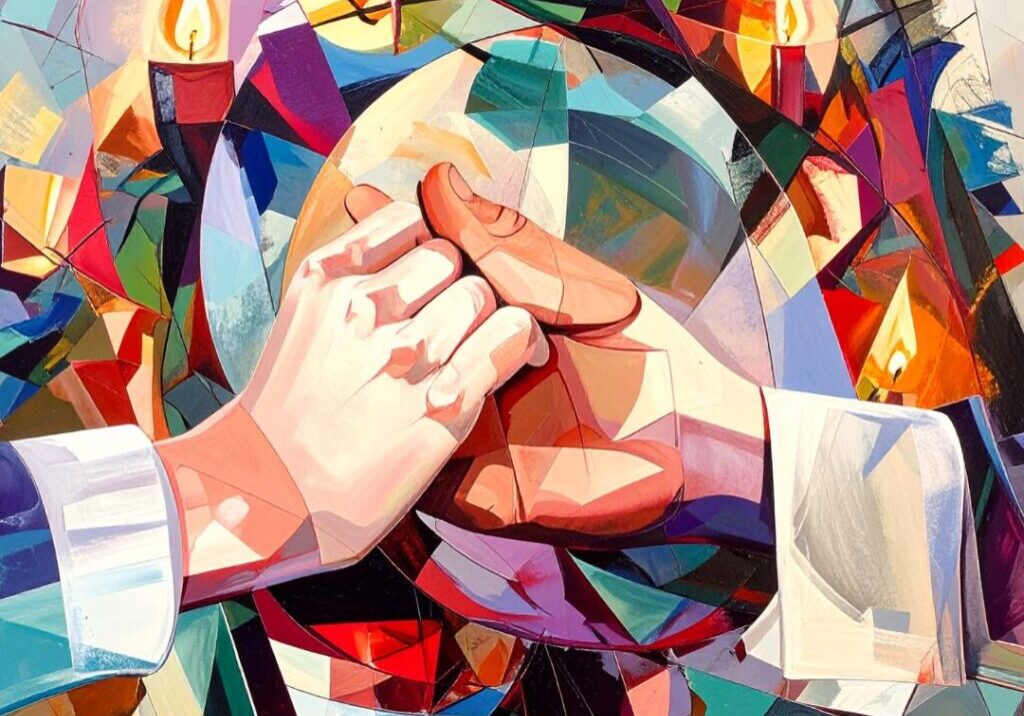A July Reflection
By Jillian Langford
I am the daughter of a newspaper copy editor. Growing up with a father whose job it was to literally read the newspaper front to back everyday meant that my own childhood was filled with conversations about current events, politics, and news about the world. It was not uncommon to find articles on the same topic from three or four different news sources on the kitchen table in the morning, each showing a different perspective or angle.
I was fortunate to grow up in a family that valued and acknowledged differences. Even if my dad preferred one news outlet to another, he instilled in me the importance of looking at the same story from a different perspective. Only when seeing the story from multiple angles can we see the full picture.
Although I was raised learning to see different perspectives, especially when it comes to the news, I cannot help but find myself prone to anger and frustration by the headlines I read on my phone each morning, and the podcasts that report the division occurring in my country and the world. Although I continue to do my best to see both sides of the same story, I find myself seeing anger, frustration, and even hate from both sides, no matter where I look. Seeing my friends and family debating one another online, protesting in the streets while others celebrate, and mixing mourning with celebration has left me finding it harder to see the whole picture, and wanting to just throw in the towel and pick “my side” to fight on.
These headlines, and our reactions to them, reveal that we are living in a deeply divided culture. Division leaves us filled with frustration, anger, and hopelessness. This is because our world is not meant to be fractured and divided, but the very evolutionary nature of the cosmos points to fulfillment from movement toward a deeper union in love.
In her most recent article for the Center for Christogenesis website, ‘Gun Violence and Technology,’ Ilia Delio wrote: “The world is in process of becoming something more than what it is, but it takes a conscious awareness of belonging to the cosmic whole in order to help creatively evolve towards greater wholeness. We cannot begin to know this wholeness if we are constantly distracted, self-promoting and self-justified in every thought and action. If we do not contribute to the ongoing evolution of the whole, in which God is the vitalizing center, we will be its breakdown.”
In the midst of deep division, it is easy for our first reaction to be anger. While these emotions can certainly feel justified given the circumstances, what is even more necessary than immediate emotional response is deep thought that leads to actions that facilitate wholeness and complexity. Teilhard de Chardin wrote about how persons are evolution become conscious of itself. In and through deep thought, not only do we reflect on the world in its current state, but we are able to begin seeing the whole and contributing to the creation of the universe through our reflections. If Teilhard is right, and we are truly evolution becoming conscious of itself, our actions, responses, and emotions play a role in the formation and evolution of the world as we know it. Our task, especially when navigating the sea of ominous headlines, is to reflect, think deeply, and direct our lives toward the wholeness that we see lacking around us as evolution conscious of itself. Only then can we act as co-creators together with God in an evolving world, and realize the wholeness for which we are longing.
Read Ilia’s recent article as referenced: “Gun Violence and Technology” – Click here.
If you would like to continue to support the work at the Center for Christogenesis:
DONATE TODAY
 View print-friendly version
View print-friendly version
2 Comments
Related Posts

The Great Work of Love: Chaos, Justice, and Divine Evolution
The images emerging from Minnesota—multitudes converging in defiance of bitter winter winds, voices rising in collective lament and resistance—continue to command our attention. These are not merely protests; they are…


As I read this reflection I was struck by the words ‘headlines’, ‘deeply divided’, ‘hopelessness’ and ‘fractured and divided’. I’m writing from Australia, where climate events are ravaging entire communities at an increasing rate through fire or flood every year. I can’t tell you how it felt to recently learn that we lead the world on extinction – we have lost more mammal species than any other continent. The WWF report that 3 billion animals were killed or displaced by the bushfires in 2019-20 alone. It’s devastating.
I appreciated Jillian’s writing that ‘In and through deep thought, not only do we reflect on the world in its current state, but we are able to begin seeing the whole and contributing to the creation of the universe through our reflections.’ I feel this is quite true. Along with some Quaker friends, I recently completed the online ‘Active Hope’ training course (based on the book of the same name by Joanna Macy and Chris Johnstone). One of the early parts of the training is about honouring our pain for the world. My reflection on the pain I feel for our beautiful Earth led me to Paul Hawken’s recent (2021) book ‘Regeneration: Ending the Climate Crisis on One Generation’ which has in turn enlightened and inspired me in several ways. I’d like to share a quote from an early chapter titled ‘Agency’ (p.11):
“The needs of people and living systems are often presented as conflicting priorities – biodiversity versus poverty, or forests versus hunger – when in fact the destinies of human society and the natural world are inseparably intertwined, if not identical. Social justice is not a sideshow to the emergency. Injustice is the cause. Giving every young child an education; providing renewable energy to all; erasing food waste and hunger; ensuring gender equity, economic justice and shared opportunity; recognizing our responsibility and making amends to myriad communities of the world for past injustices – these and more are at the very heart of what can turn the tide for all of humanity, rich and poor, and everyone in between. Reversing the climate crisis is an outcome. Regenerating human health, security and well-being, the living world, and justice is the purpose.”
It’s such a beautiful book to read. Paul also writes about how we need a committed and collective global effort, and that collectives don’t “emerge from the tops of institutions. They begin with one person and then another, the invisible social space where commitment and action join and come together to become a dyad, a group, a team, a movement.” (Maybe this is an example of Teilhard’s complexification of relationships?)
At the risk of going overboard citing reflections on reflections on reflections, all of the above reminds me of Ilia’s statement that it “takes conscious awareness of belonging to the cosmic whole in order to help creatively evolve towards greater wholeness.”
May we all feel awake to our cosmic connectedness and energised by the prospects of what we can achieve together.
Jillian Langford has a wisdom that many older people could enjoy. As one much older, I try not to get angry–It makes me tired. My father intuited that life is competition. I later learned about social Darwinism. Still later I learned that humanity is evolving from individualistic survivalism and tribalism and later nationalism to higher consciousness that humanity is part of creation, and God is drawing the whole of creation to ultimate fulfillment. Cooperating with God for the better of the whole is a concept that enlivens me among countless others.